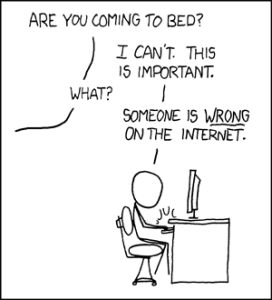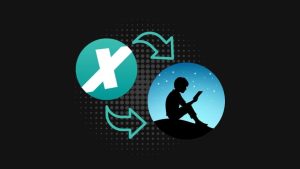
For many bloggers, writing is a personal passion. Every successful blogger who has gone on to build a real business started for the same reasons you most likely started yours — because they genuinely enjoy sharing their style with friends and fashion enthusiasts, and they would do it with or without financial reward. Monetizing your blog takes time, but the rewards can be great for those who are patient and willing to build something genuine. We’ve pulled together a number of tips to help you turn your own blog from a passion into a paycheck.
Part I: Build Your Foundation
Before you can think seriously about monetizing your blog, you need to lay the right groundwork. Keep these things in mind before getting started:
Be Authentic
It turns out that the passion you have for your blog is also what will make you successful when it comes to monetizing it. Even internet moguls like fashion influencers Chiara Ferragni and Aimee Song — bloggers who have turned their Blogspot accounts into commercial empires — started by simply posting looks they personally loved. This is important to remember as you work toward monetizing your own blog, because authenticity is often the first casualty when bloggers start thinking of their blogs as businesses. The most essential piece of advice we can give you is to stay true to your personal passions and what your followers love to see. If your posts start looking like advertisements or rote business advice, your audience may not trust you — and are likely to disengage.
Make Every Photo Count
In a highly competitive “blogosphere,” readers are looking for bloggers that stand out. This means no lazy posts! Take the time to find the right professional photo for your post, or better yet, stage your own. Nothing can turn readers off an otherwise insightful, unique piece of content quite like a stock photo that has already appeared on 10 different pieces online. Give every photo as much attention as you do your written articles, and you are more likely to build a solid readership, even if you are just starting out.
Build Your Audience
Your opportunities as a blogger grow along with your audience so it’s important to focus on your followers together with your post quality. (No one ever said turning your blog into a business would be easy, but the work is worth it!) Focusing on your followers doesn’t just give you better opportunities when you look to monetize; it also helps you better understand what types of content are resonating with your audience. Install Google Analytics on your blog and track how well your posts do based on the topic, time published, and where you shared them, i.e. Facebook, Twitter or Pinterest. Be as diligent about the back-end of your blog as you are its content. Savvy bloggers know the logistical parts of blogging are just as important as staging the perfect look. Part of this diligence is consistency. Half the battle in the competition for audience attention is simply having the discipline to publish regularly.
Part II: The Opportunities
Now we’re into the nitty-gritty of how to turn your great content into sponsorship. Once you have the basics of a good blog on autopilot, you can put your efforts into monetizing:
Collaborations
Collaborating with complementary brands gives you a chance to make connections that can lead to long-term opportunities. Part of choosing the right brand partners (and allowing the right brands to find you) is showing them who your audience is. This is why we encourage our bloggers on Shopping Links to connect their Google Analytics on their profile. If you’re reaching out to a brand in your industry, we recommend offering a screenshot to show your demographics, and a link to your Alexa ranking.
If you are just starting out, it can be tempting to want to pursue every opportunity that comes along. We recommend taking collaborations as seriously as you do your content, even if it means passing on some opportunities that just don’t align to your style and audience. The more connected you feel to a brand partner, the better content you will create for them, and the greater opportunities you will have in the future.
Affiliate Links
Affiliate links through individual retailers and larger networks have become a popular way for bloggers at all levels to make commission from the looks they post. Becoming an affiliate is easiest for fashion and eCommerce retailers. Most will simply have a link on their site inviting you to “Become an Affiliate.” From here, you can access a custom link that allows you to receive commission when your audience makes a purchase using that link. Yet while this is a popular and sometimes lucrative way to monetize your blog, we recommend keeping two things in mind when using them: First, never let affiliate links dictate your content. As soon as you start posting for the sole purpose of commission, your audience will see through you, and so will Google!
Stick to pieces you love and remember the golden rule of blogging: be authentic. Second, always check with a brand about their preference for the use of affiliate links. Some brands require influencers to use specific links so they are able to track the results as part of the collaboration. And definitely do not promote a competitor’s link in a collab even if the brand does not have the option to include affiliate links. Although tempting, you’re just driving traffic away from the brand who has engaged you to promote them. This is common sense, but a surprising number of bloggers don’t think this part through. Be mindful of how and when you are using your links.
Sponsored Content & Advertisements
This is where maintaining your own blogger identity and URL, rather than simply posting on platforms like Instagram or LinkedIn, becomes important. Having strong blog traffic and readership means having an audience that brands will pay to reach. Using Google AdSense or your own ad platform can allow you to earn residual income from your site. Posting clearly marked sponsored content (content produced by a brand) is another way some bloggers have monetized their sites, but as mentioned above, any sponsored content should align with your own posts.
A Final Note: It can take a lot of work (and even more patience), but in the end, monetizing your blog starts with a commitment to uncompromisingly great content and consistency. Stay authentic to your personal brand and approach every collaboration, sponsorship and advertiser relationship with professionalism and gratitude, and you may soon find yourself counting more and more paychecks from your passion project.
This article first appeared on the Shopping Links blog.
Digital & Social Articles on Business 2 Community(87)






